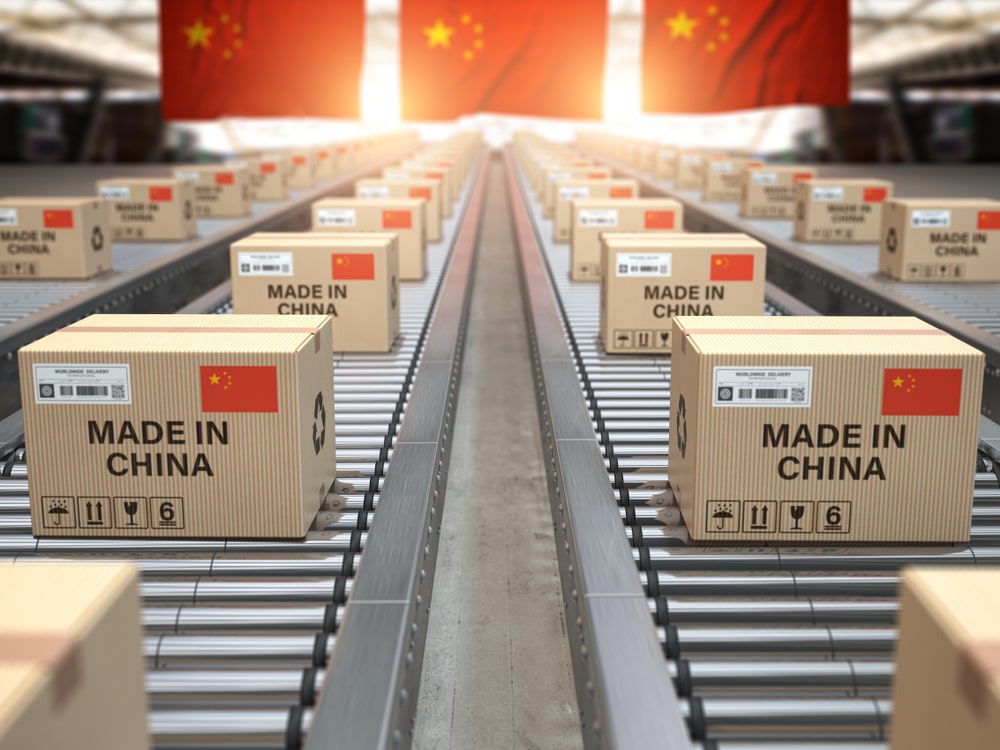
Leading US companies including Boeing, General Electric, Nike have come under increasing pressure from lawmakers and shareholders to disclose any China-linked exposures in their supply chains.
The concerns come against a backdrop of rising US-China tensions over a range of issues including Taiwan.
The United States has been actively concerned about the looming threat of China, in particular its growing dominance in a range of industries.
US Intelligence in their annual threat assessment published in February, noted a concern about China’s dominance in technology, semiconductors, battery, solar panels and pharmaceutical sectors, and whether Beijing would in a crisis leverage this to their advantage for political or economic gain.
Similarly, US lawmakers on Capitol Hill have taken a more hawkish stance on China, with the formation of the Select Committee on China, with the goal to “restore supply chains and end critical economic dependencies on China”.
The committee published an open letter in May to both Nike and Adidas asking how they avoid using goods made with forced labour in China, in particular from Xinjiang Uygur Autonomous Region (XUAR).
US lawmakers have strengthened their legislative teeth against China, with US lawmakers enacting the Uyghur Forced Labour Prevention Act, which caught many US companies off-guard.
Under the act, it is assumed any product made with goods even partially sourced from Xinjiang Uygur Region was made with forced labour, unless proven otherwise.
US Customs has reported that it has denied 490 shipments into the country since the law was enacted. 291 of these shipments are for apparel, footwear and textile companies.
In a recent publication of financial fillings, many leading US companies have highlighted their concerns about an escalation in US and China tensions, which would hurt their businesses and operations in China.
General Electric in their 10-Q filing, noted the risks imposed by an “escalation of sanctions, tariffs, or other trade tensions between the US and China or other countries and related impacts on our businesses’ global supply chains and strategies”.
Boeing described the current state of China-US relations as an “ongoing watch item” and describing China as “a significant market for commercial aircraft”, before noting that "Boeing has long-standing relationships with our Chinese customers, who represent a key component of our commercial aircraft backlog”.
Ford wrote in their filing that “China presents unique risks to US automakers due to the strain in US-China relations, China’s unique regulatory landscape, and the level of integration with key components in our global supply chain”.
They also noted that their operations are based in “various markets with volatile economic or political environments”, which they believed would “expose us to heightened risks as a result of economic, geopolitical or other events” that can harm their operations and in turn their financial revenue.
In a section on their filing titled “risks related to our operations”, General Motors believed their ability to “deploy technologies in China may be impacted by evolving laws and regulations in US and China” and noted concerns about US-China trade tensions.
Shareholders are concerned about the threat too, with Bloomberg reporting that Walt Disney Company, Apple, Starbucks and Boeing have all faced resolutions from shareholders asking them to investigate the potential risks to their reputation by operating in China, and to examine all operations in China.
Many companies such as Apple are actively moving away their manufacturing and sourcing of products from China to other countries, such as Vietnam, Taiwan, US, Mexico and India.
All these countries were listed among top destinations to move to during the period of 2018 to 2023 according to Bloomberg.
Geopolitical risk was cited by 23% of responses to a KPMG poll, which surveyed 132 companies on the reasons behind their Asian Pacific sourcing moves.
Supply chain experts have emphasised that such supply chain changes will take a long time to implement and will have cost implications.
With US-China tensions rising, it is not surprising that companies are monitoring, quantifying or even removing their China-linked supply chain exposures.
However, a balance needs to be struck between promoting a globalised economy, where companies are free to move operations to manage costs and navigating geopolitical concerns about China.
This is the dilemma that many global organisations are facing, and it will require skill and leadership to navigate the next few months and years.
Boeing in a proxy statement in April, as reported in Bloomberg, summed up this dilemma:
“Singling out particular countries or groups of customers for scrutiny would be misleading to shareholders and potentially damage our relationship with customers, suppliers and regulators”.

Related Articles
Corporate risk
Corporate risk
Corporate risk